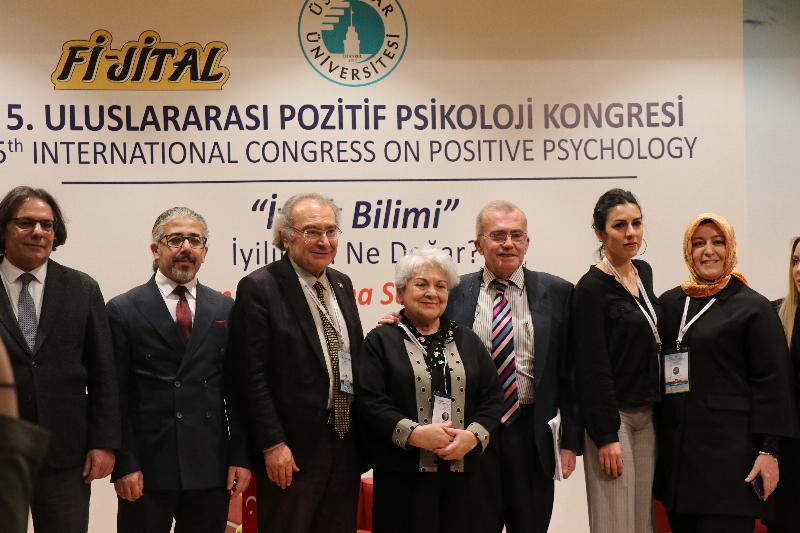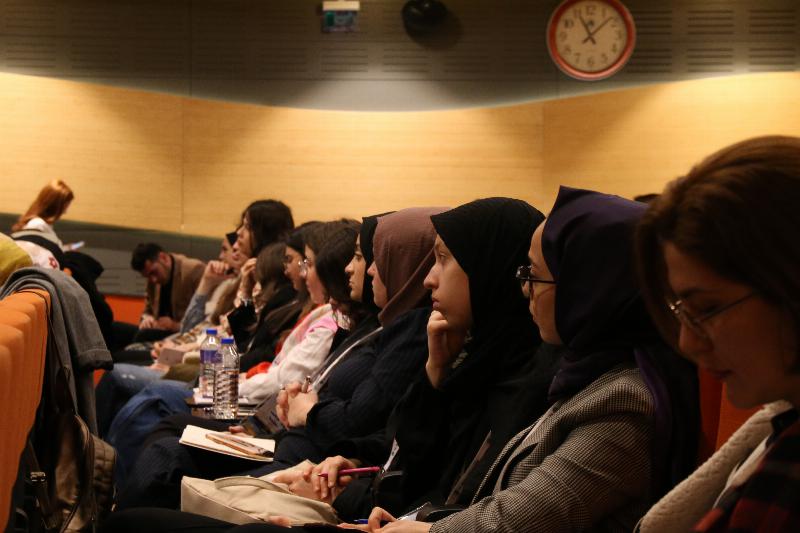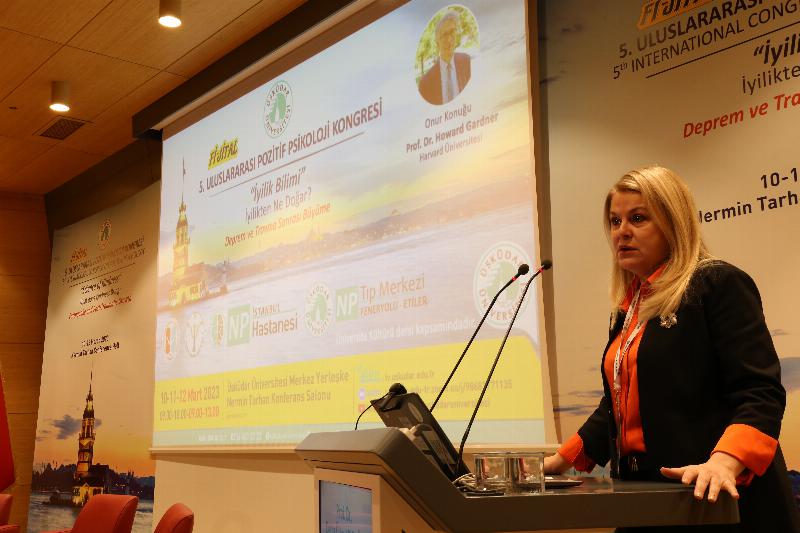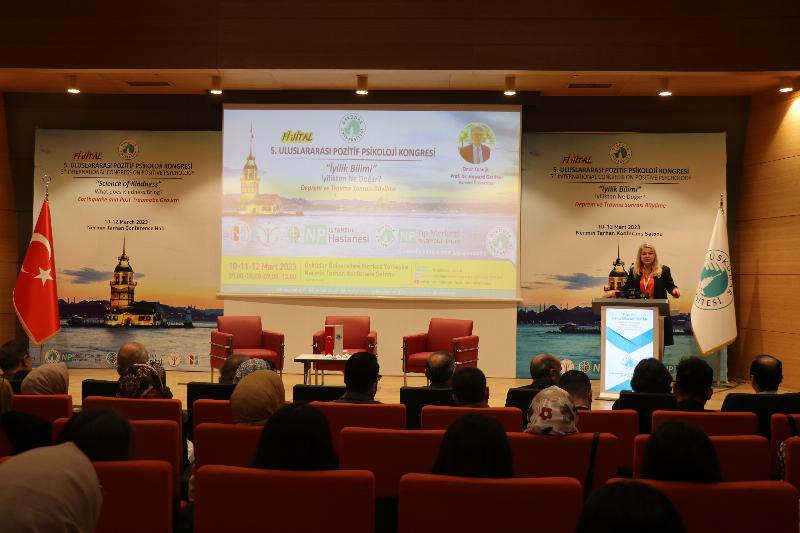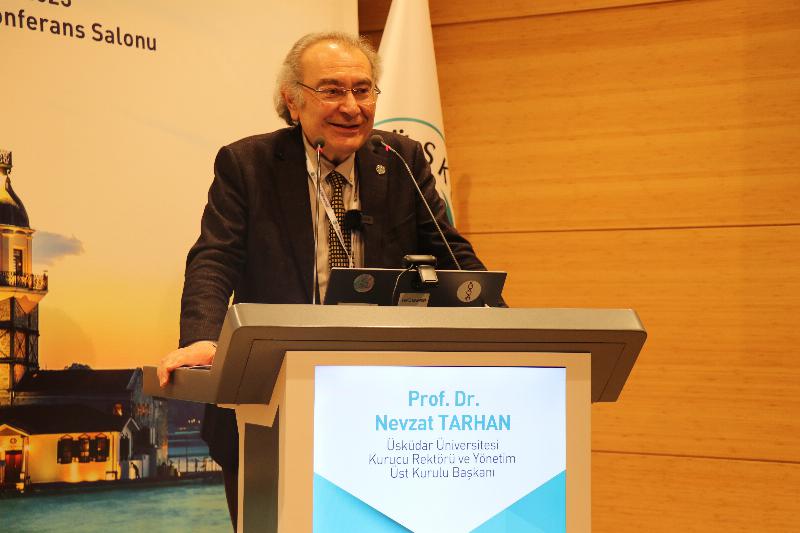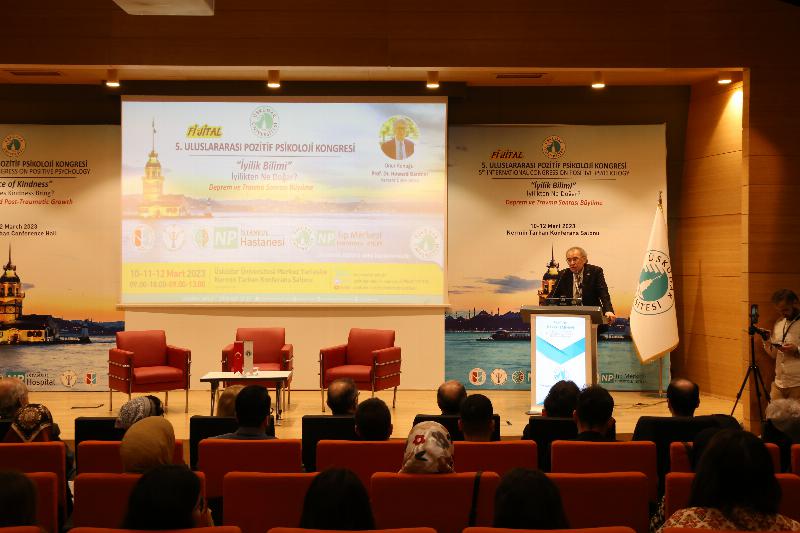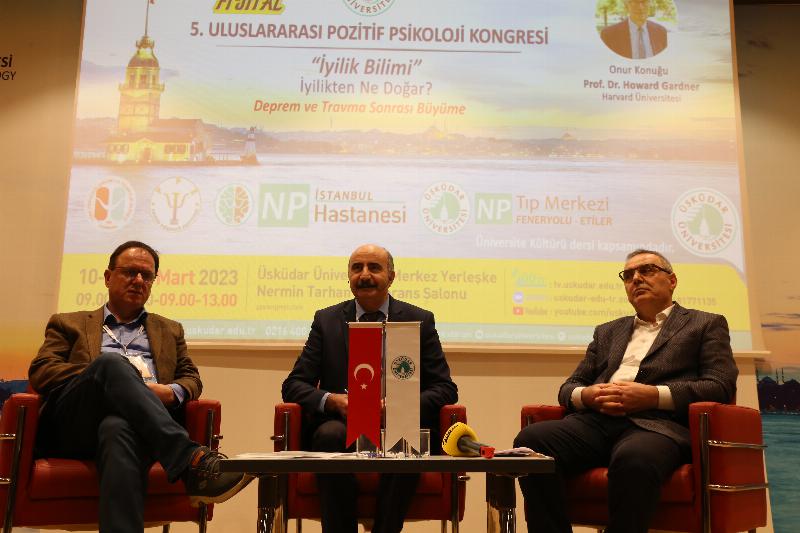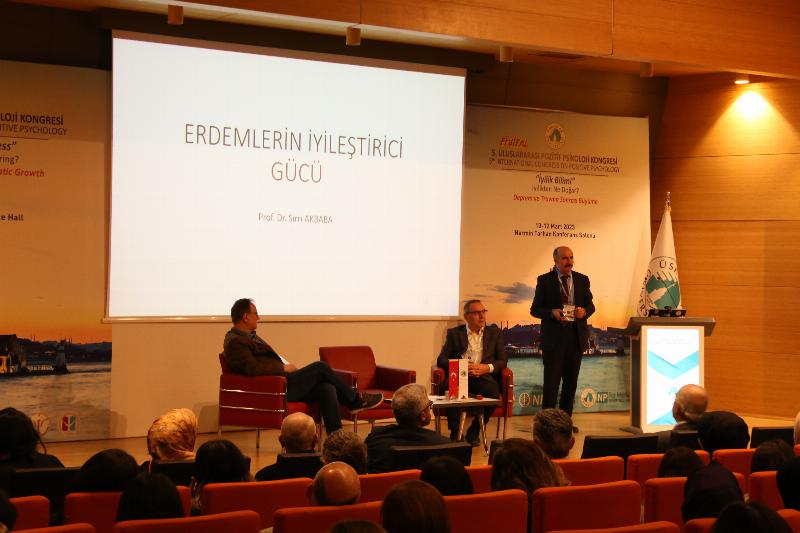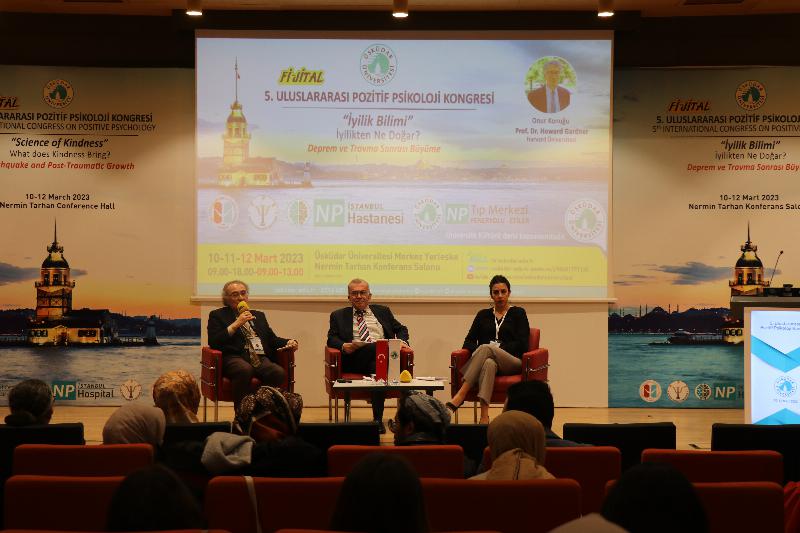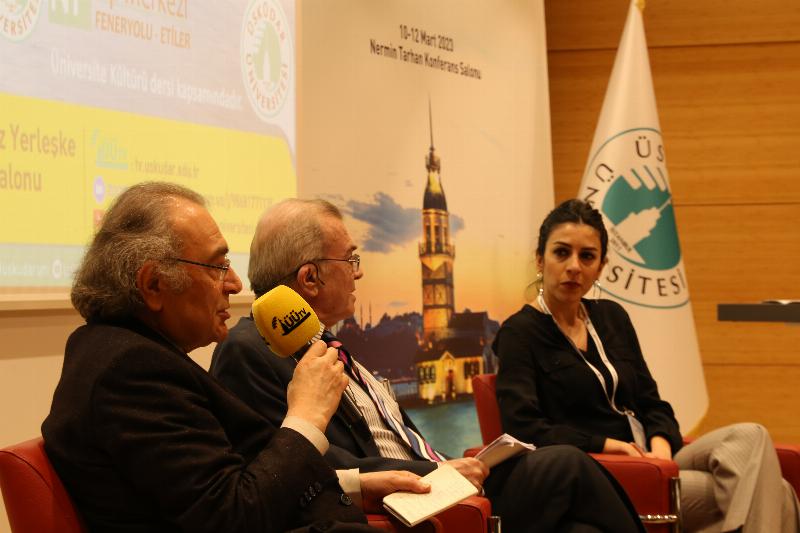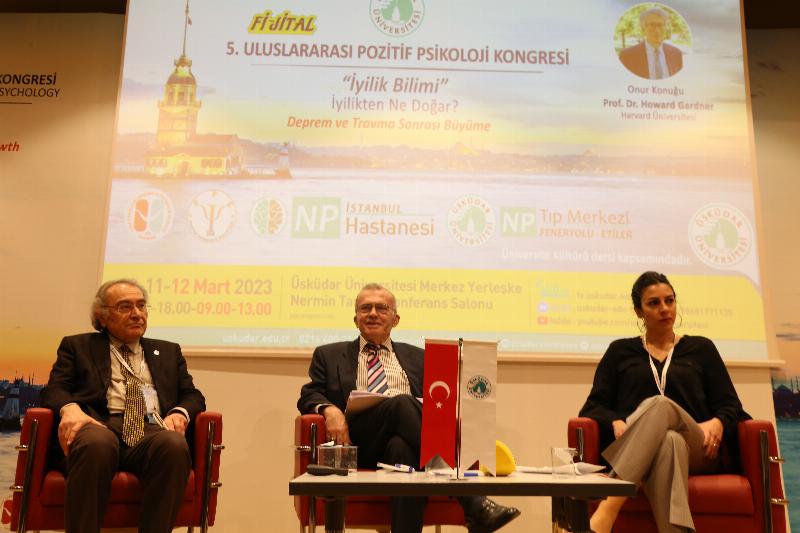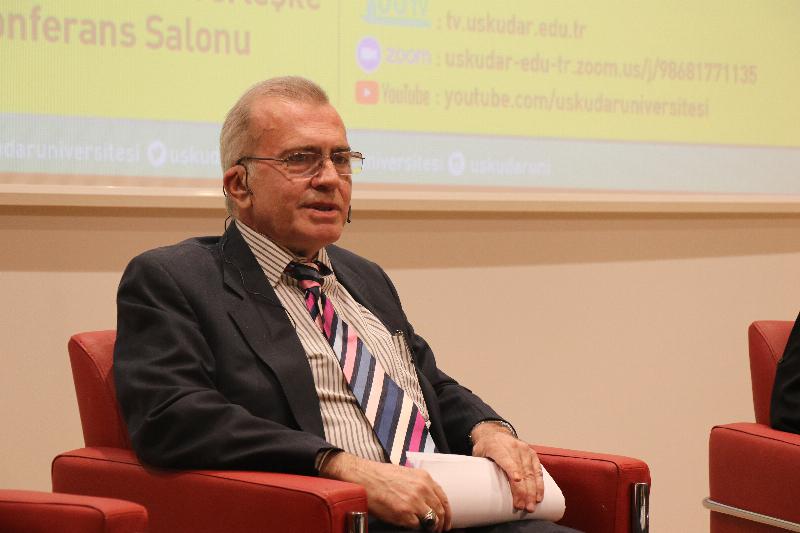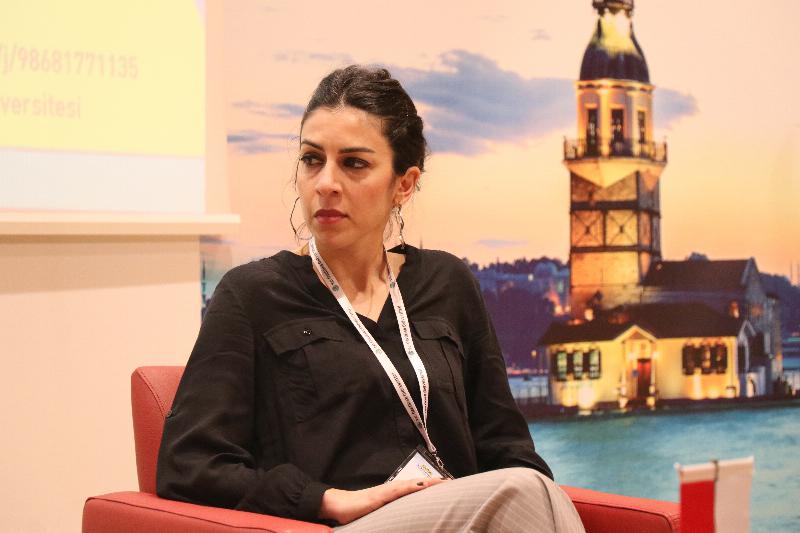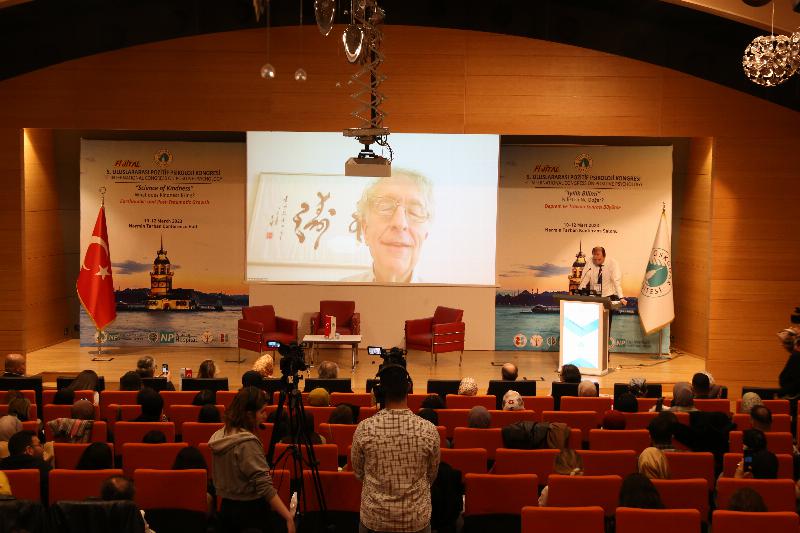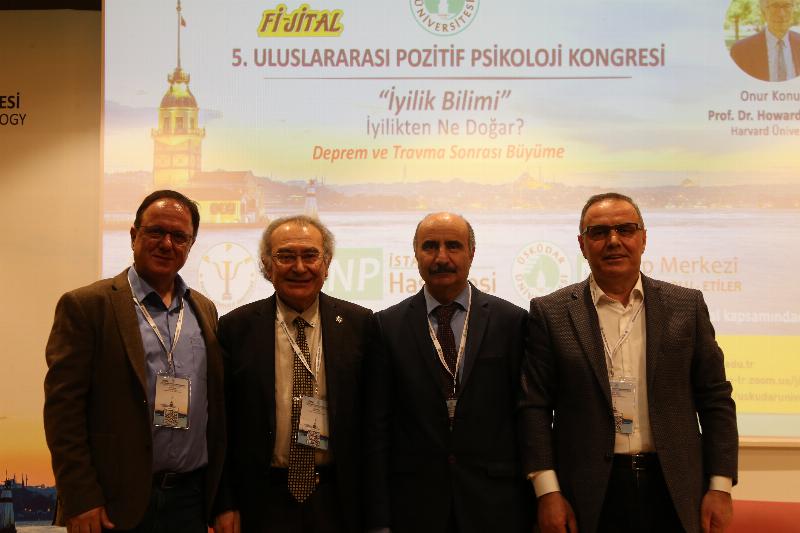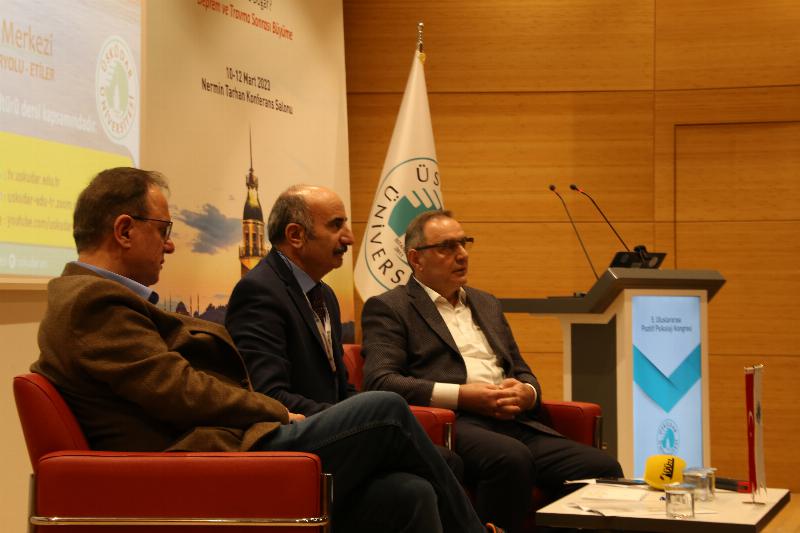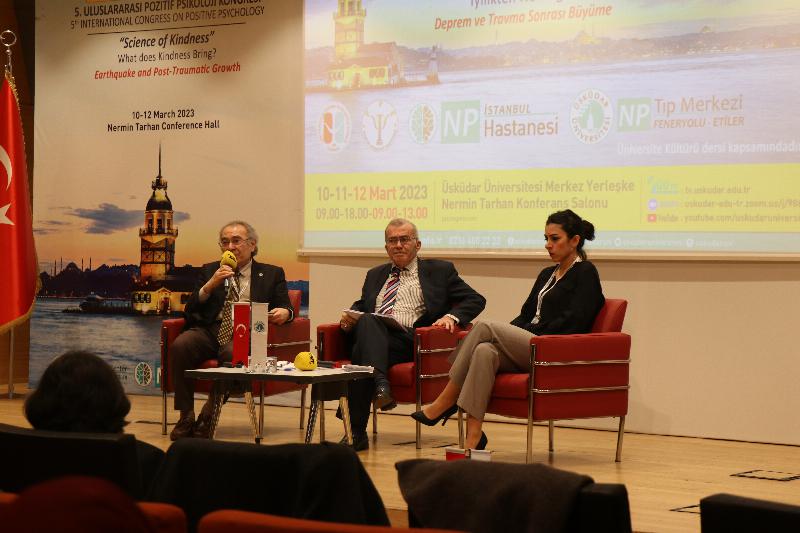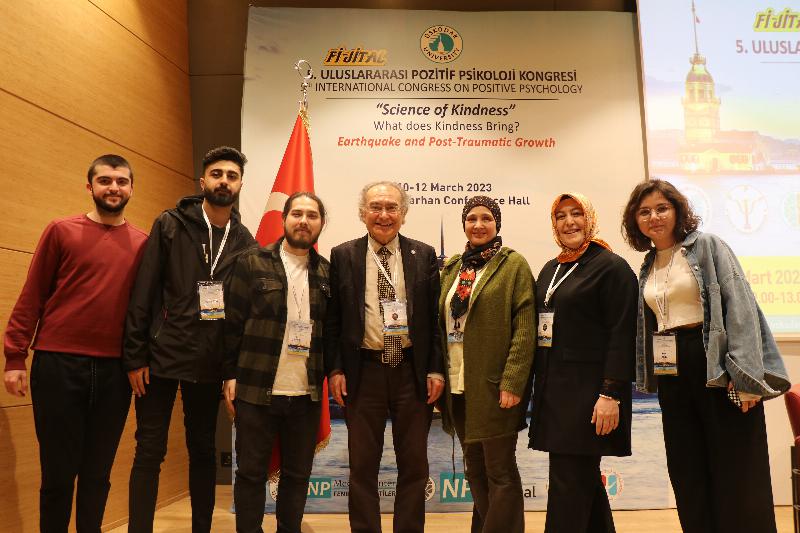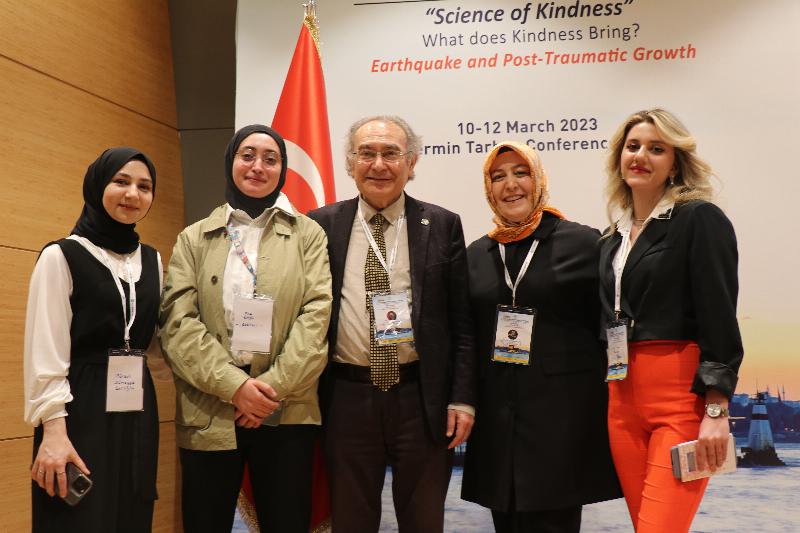International Positive Psychology Congress is being held with the theme of “Science of Kindness”
The 5th International Positive Psychology Congress, organized by Üsküdar University this year, was held in the theme of "The Science of Kindness / What Does Kindness Yield? & Growth After Earthquake and Trauma". In the congress, which is held with the participation of world-renowned scientists from all over the world, topics such as 'The Science of Kindness', 'What does Kindness yield?', 'The Meaning and Purpose of Life', 'Optimism and Hope', 'Psychological Needs and Motivation', 'Psychological Resilience', 'Post-Traumatic Development' and 'Human Relations and Social Support' are discussed. President of Üsküdar University Prof. Nevzat Tarhan said that one of the parameters of post-traumatic growth is to develop the virtue of giving importance to relationships. Tarhan said, "People become lonely as they become self-centered, they become lonely as they become strong and they do not care about relationships. In events such as earthquakes, people begin to see that loneliness is a harmful element for them.".
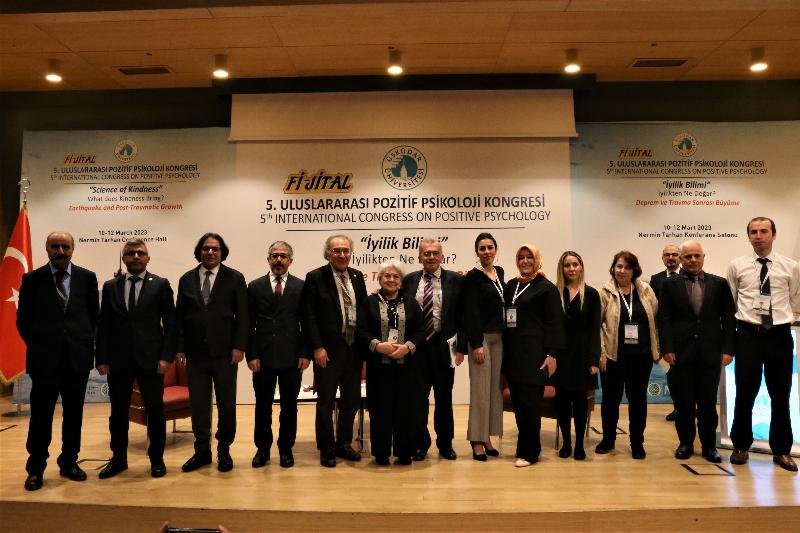
The International Positive Psychology Congress, which was held for the 5th time this year by Üsküdar University with the partnership between Üsküdar University, NPİSTANBUL Hospital, NP Etiler & Feneryolu Medical Center, Turkish Psychological Counseling Guidance Association and Positive Psychology Institute, welcomes experts working in this field. The theme of this year's three-day congress is "The Science of Kindness / What Does Kindness Yield? & Growth After Earthquake and Trauma".
The congress, which was held phy-gitally at Üsküdar University Main Campus Nermin Tarhan Conference Hall, started with the opening speeches of President of Üsküdar University Prof. Nevzat Tarhan, who is also the Congress President, and Üsküdar University Advisor to the Rector, Acting Dean of the Faculty of Humanities and Social Sciences Prof. Deniz Ülke Arıboğan.
Prof. Deniz Ülke Arıboğan: “Experts satisfy their egos in their explanations”
Stating that the Kahramanmaraş-centered earthquake, as it is scientifically revealed, is a disaster that occurs once in 500 years and in which multiple destructive tremors happen Prof. Deniz Ülke Arıboğan said, “The earthquake we experienced is defined as a disaster event affecting the widest geography in the history of humanity. There is another trauma experienced by millions of people who were exposed to the traumatic effects of the earthquake and felt as if they were experiencing by watching the event. Moreover, there are experts who do not leave enough opportunity to be sad about the disaster in our cities and traumatize everyone in the country by saying that the Istanbul earthquake is coming within the first 24 hours. Earthquake is the reality of our life, experts say it, but how they say it is important. Inflating their egos, a little bit, we see experts on television satisfying their narcissistic personality disorders in public to differentiate themselves. The main thing is not to scare people. It should not be that easy to tell people they are going to die.".
Prof. Deniz Ülke Arıboğan: “The main source of traumas is not earthquakes but ignorance”
Noting that the first priority of human beings is to ensure their safety, Prof. Deniz Ülke Arıboğan said, “The dangers occur outside our home, that is, outside the place where we take shelter. We would never think that that bunker would be an element of danger. The place where we have to escape, to take shelter is danger itself right now. However, we think we can survive by living on the street. This is actually a disengagement trauma. It is very clear that the way to get rid of the effects of major disasters such as earthquakes is through science. We need to implement the building structures, urban structures and ways of thinking that will keep us safe because the main source of traumas is not earthquake but ignorance.”.
Prof. Nevzat Tarhan: “They presented our Anatolian wisdom to the world under the name of Positive Psychology”
Reminding that the concept of positive psychology was first discussed in 2005, Prof. Nevzat Tarhan said, “The first congress on this subject was held in 2008. A new discipline of science has emerged. While investigating what its foundations are based on, they actually took our Anatolian wisdom and systematized it, developed its methodology and presented it as Positive Psychology. In 2013, we offered it to all students as a rectorate course. It, then, was added to the curricula of Harvard in 2015, Yale in 2018, and University of Bristol in 2019. The University of Bristol considered positive psychology the science of happiness against the epidemic of suicide. Currently, they are taking high school and middle school students to mindfulness training in the middle of class in the USA due to the fact that the cases of suicide attempts and major depression among students in the West and the USA have increased, and it has almost peaked since 2008.”.
Prof. Nevzat Tarhan: “Every trauma has a threat and an opportunity dimension”
Recalling the earthquake disaster that occurred on February 6, Prof. Nevzat Tarhan said, “The guest of honor in our congress Prof. Howard Gardner from Harvard University asked the postponement of the congress due to the earthquake. We told him scientifically that it should transit to normalization within 2-4 weeks. We think that the 5th International Positive Psychology Congress will contribute to normalization. We wanted to continue the congress by adding a sub-topic titled post-traumatic growth. Every trauma has a threat and an opportunity dimension. Scientists and geoscientists focus a lot on the threat dimension. They may be right in their own way, but the opportunity dimension should not be neglected.”.
Prof. Nevzat Tarhan: “We should benefit from positive psychology for public mental health”
Noting that our lives will change as before and after the earthquake, Prof. Nevzat Tarhan said, “People's comfort has disrupted in this geography. We have to question the reliability of our living spaces. On the other hand, our freedom was also restricted. It was felt that death was closer than anticipated, especially by the youth. However, happiness is possible. A person can only be happy if one defines happiness correctly. Happiness is a process, not a goal or an outcome. It is necessary to catch up with that process and be on that path. Popular culture teaches especially internal and external cause happiness. The main thing is to make a person happy by correcting their inner dynamics. If we want to do something to protect the mental health of the society, to prevent them from getting sick, and to reduce violence and crime, it is necessary to benefit from positive psychology, which has a very serious scientific reference as preventive health work.”.
After the opening speeches of the congress, congress panels were begun.
Prof. Sırrı Akbaba: “Positive psychology is the original product of our culture”
In the opening panel of the congress titled "The Science of Happiness", Prof. Sırrı Akbaba stated in his speech titled “The Healing Power of Being Virtuous” that positive psychology is the original product of our culture and added, “Being a virtuous person is the focal point of positive psychology.”. Prof. Adnan Ömerustaoğlu from Biruni University gave his speech on "The Science of Happiness" and Prof. Halil Ekşi from Marmara University gave his speeches on “Positive Psychology and Spirituality”.
In the last panel of the congress called “Earthquake and Trauma that Develops”, the earthquake and its traumatic effects were discussed.
Prof. Nevzat Tarhan: “People’s priority has changed”
President of Üsküdar University and Chairman of the Executive Supreme Board Prof. Nevzat Tarhan pointed out the improving effect of trauma on “Post-Traumatic Growth”. Starting his speech by mentioning that traumas develop virtues in human life, Prof. Nevzat Tarhan said, “First of all, the order of things that people care about in their lives has changed. The same event can give different perspectives to different people. While it gives virtue and meaning to one person, the other person can impose meaninglessness. We can define this as absurdism. The Absurdists say ‘Searching for meaning is meaningless, struggling with meaning is the greatest meaning,’. On the other hand, people realized that they could face difficulties. Life has secret psychology laws. Life rewards those who can cope with difficulties. In our culture, this is called patience. However, patience is not to endure, but to follow the pace and rhythm of nature. It is balancing where to speed up and where to slow down. We need to slow down and change the order of importance on some issues.”.
Prof. Nevzat Tarhan: “The earthquake gave me the ability to delay satisfaction”
Noting that people are starting to accept things as they are, Prof. Nevzat Tarhan said, “In Mindfulness, acceptance is called determination, but I consider it as acceptance and management. It is necessary to consider the free will of the person. Accepting the events as they are and then managing should step in. There are things that people can and cannot change. In order to realize this, one must be able to use the power of reasoning. It takes patience to find the truth. Earthquake teaches this, in fact, it is psychological resilience training for people. The earthquake forces the society to live the endurance training that we try to give in therapies. At the same time, the ability to delay satisfaction was acquired. One wants it now and right away. In addition to the earthquake, the pandemic also had an effect on the ability to postpone satisfaction. It is also possible to say that there is an increased interest in spiritual issues.”.
Prof. Nevzat Tarhan: “People realized the value of what they have”
Noting that more importance has been given to relations, Prof. Nevzat Tarhan continued his remarks as follows: “One of the parameters of post-traumatic growth is to develop the virtue of giving importance to relationships. People get lonely when they are egocentric, they get lonely when they are strong and they do not care about relationships. In events such as earthquakes, people begin to see that loneliness is a harmful element for them. A human being is a relational being. Neurobiologically, one can be happy when a person is relational. Even mice have a balance of sociability and happiness. On the other hand, people have realized the value of what they have. Being happy in the face of little things is a skill. The current capital system constantly puts 10 people into competition with rhetoric such as "Earn more, be the best", but only 3 people can be happy. The system that makes 7 people unhappy is not a fair system. That's why you should be happy with the little things and set big goals. We teach our students that 'Be ambitious in education, be contented in crops'."
Prof. Nevzat Tarhan: “The brain reacts faster to negative events”
Stating that consciousness studies are at the forefront of the topics that neuroscience focuses on, Prof. Nevzat Tarhan said, “There is consciousness on our brain. The brain responds to positive events after 300 milliseconds and to negative events 50 milliseconds later. This shows that the brain spends 6 times more time on positive events. Since the brain works focused on threat and survival, it perceives the negative more quickly. When the brain decides, it acts. In this case, consciousness is activated. It is being investigated whether there is an executive gene in the brain that does these actions, however, it has not been found so far.”.
Dr. Mert Akcanbaş highlighted the concept of collective empathy
Üsküdar University, Asst. Prof. Member Mert Akcanbaş emphasized the importance of social support after trauma and the concepts of collective empathy in his speech titled “The Importance of Trust, Social Support and Loss in Post-earthquake Growth”. Highlighting the suicide cases after major disasters around the world, Dr. Mert Akcanbaş said that suicide rates increased for two years after the major earthquakes, especially in countries with high individualization, such as America and Japan. Akcanbaş said that in countries where social relations are stronger, there is no change in suicide incidents and the rate of Post-Traumatic Stress Disorder is very low, adding that especially social support prevents suicide cases. Noting that social support and collective altruism strengthen people, Dr. Mert Akcanbaş said, “I will say collective empathy as a new terminology. We hear about people who do not want to go to dinner. This collective empathy is unique to countries like ours and cultures that have not lost their collective structure.”.
Dr. Hazal Ayas: “Psychological flexibility is very important”
Üsküdar University, Asst. Prof. Hazal Ayas touched upon the effects of post-earthquake growth in her presentation titled “Post-Traumatic Growth and Associated Factors”. Noting that some of them experience further development after trauma, some do not. Hazal Ayas said, “Those who have a strict pre-traumatic perspective do not experience improvement. The stricter this point of view, 'Nothing will happen to me' or 'I am a very careful person, I took my precautions', the more intense the shock from the traumatic event, because the schema of why is strict. Psychological flexibility is very important here, flexibility of schemas is also very important.”.
Prof. Gardner from Harvard University was the guest of honor
In the congress, which continued with a conference titled Social scientist “Does Mercy yield Sickness?” by Prof. Fatma Beylü Dikeçligil, Prof. Dr. Metin Pişkin gave a conference titled “Positive Career Counseling in the 21st Century”. On the first day of the congress, Prof. Howard Gardner from Harvard University gave a speech titled “The Science of Kindness, The Theory of Multiple Intelligences” as the guest of honor.
An online conference will be given from Ukraine
Workshops with the participation of NPİSTANBUL Hospital specialists were also held at the congress. Important scientists will also give conferences on the second and third days of the congress. Prof. Daria Suprun from Dragomanov University of Ukraine, who will attend online from Ukraine, will also give a conference titled "Professional Identity and Social Values: Synergy of Education and Spirituality".
Prof. Oğuz Tanrıdağ will talk about “Neuroscientific Foundations of Positive Psychology”
Üsküdar University NPİSTANBUL Hospital Neurology Specialist Prof. Oğuz Tanrıdağ will also attend the congress with a conference titled “Neuroscientific Foundations of Positive Psychology”. On the last day of the conference, NPİSTANBUL Hospital Specialist Clinical Psychologist Özgenur Taşkın will give conference titled "The Relationship between Self Compassion and Conscious Awareness" and Üsküdar University Asst. Prof. Fatma Turan will give a conference titled “The Voice of Hope: Silent Kindness”.
Üsküdar News Agency (ÜNA)
